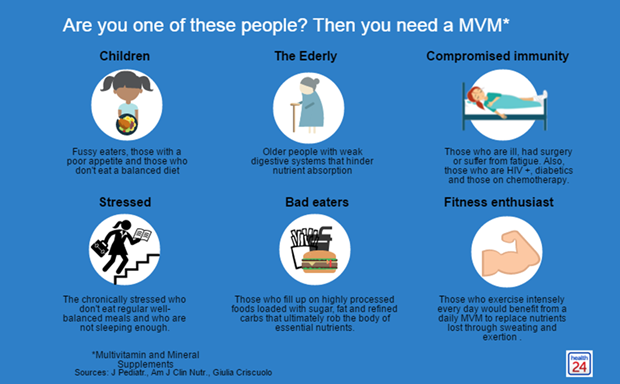You may have heard how food today, lacks essential vitamins. You may also hear of how multivitamins are the solution to this. With all this hype around multivitamins, the real question still stands unanswered. Do multivitamins really work?
What are multivitamins?

National Institues Of Health (NIH) defines Multivitamins(MVM) as :
A product that is meant to supplement the diet. MVMs contain a variety of vitamins and minerals. The number and amounts of these nutrients can vary substantially by product.
NIH
Multivitamins contain many or a select few of these Vitamins. On another note, vitamins fall in two categories, namely; Water Soluble and Fat Soluble Vitamins. Multivitamin supplements contain a combination of these. Each product varying in their vitamins’ concentration when compared to another. They may also contain other components like herbs, amino acids, and fatty acids. Our markets have a plethora of multivitamin powders, pills, candies and other supplement forms to offer. While choosing a multivitamin, try to grab one that has higher concentrations of the specific minerals you lack. A quick blood test will suffice in finding this out.
Do Multivitamins actually work?
Studies have shown that yes, multivitamins do bring about improvement in certain areas of health. A balanced intake of such supplements can help with problems related to stamina, sight, focus and even skin condition.
Multivitamins are very beneficial in
A recent study proved that women, (but not men), using a multivitamin for at least three years reduced their risk of dying from heart disease by 35%. Similar studies show multivitamins to be useful in preventing heart attacks and death, while others report no such effects.

Harmful effects Of Multivitamins
Before ingesting any type of multivitamin, be it naturally derived or allopathic; consulting a recognized Nutritionist is recommended. We say so, as there is a downside to consuming an excess of certain vitamins.
For example: Excessive intake of vitamin A by a pregnant woman can lead to birth defects.
Another such scenario is the excessive intake of beta-carotene/vitamin A by smokers. This increases the risk of lung cancer by a substantial amount.

Most vitamins are harmless
Best way to use multivitamins

To make the best out of a multivitamin be sure to consult your doctor. Doing so gives you
Featured image courtesy: mensjournal.com


Comment here